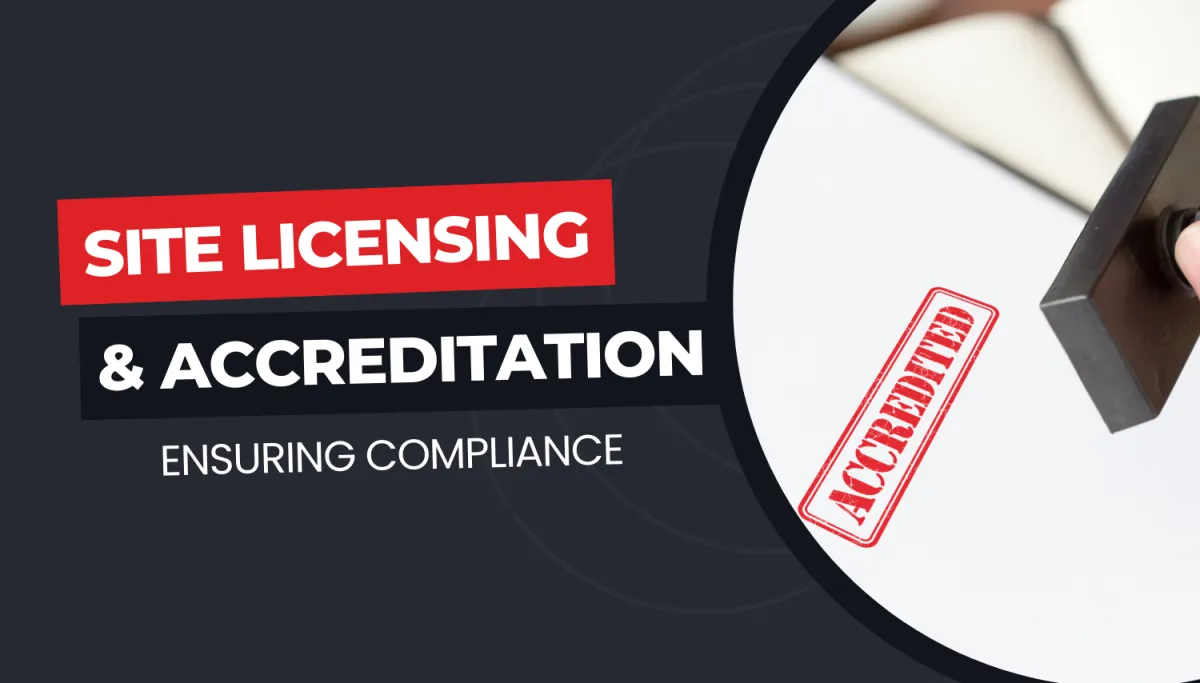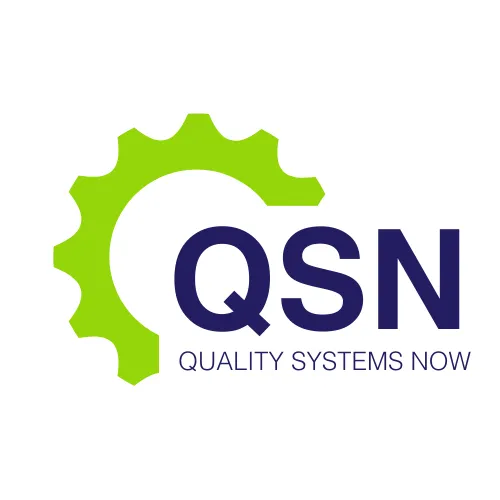LATEST NEWS

Site Licensing & Accreditation: Ensuring Compliance
The landscape of manufacturing and product development in regulated industries, particularly pharmaceuticals, medical devices, and biotechnology, requires stringent compliance with global quality and safety standards. Two major frameworks guiding this process are Good Manufacturing Practice (GMP) and the ISO standards, particularly ISO 13485 and ISO 17025. These regulatory requirements ensure that companies meet the rigorous expectations for product safety, efficacy, and quality while maintaining consistency across various operational processes.
This paper explores the critical aspects of site licensing and accreditation in relation to GMP, ISO 13485, and ISO 17025, providing an understanding of their application in life sciences, pharmaceuticals, and medical device industries.
At Quality Systems Now we help therapeutic manufacturers and support companies gain & maintain their GMP manufacturing license or ISO accreditation, as well as develop or transform systems and processes, while ensuring compliance.
1. Site Licensing and Accreditation
Site licensing and accreditation are pivotal in ensuring that companies involved in manufacturing, research, and testing comply with regulatory requirements and international standards. The licensing process ensures that a manufacturing facility or testing laboratory has the necessary capabilities, infrastructure, and systems to consistently produce safe and high-quality products.
Accreditation goes beyond compliance, establishing that the company operates at an exceptional standard recognized globally by regulatory agencies. Accreditation under GMP, ISO 13485, or ISO 17025 fosters a reputation of trust among stakeholders, including regulatory authorities, consumers, and investors. Moreover, it acts as a precondition for entering regulated markets, such as the European Union (EU) or the United States, ensuring that products meet the specific requirements of these regions.
2. Good Manufacturing Practice (GMP)
Good Manufacturing Practice (GMP) represents a cornerstone of regulatory oversight in the pharmaceutical, biotechnological, and medical device industries. The World Health Organization (WHO), European Medicines Agency (EMA), and the U.S. Food and Drug Administration (FDA) are among the agencies that enforce GMP standards to ensure product quality and patient safety.
GMP encompasses a set of guidelines that regulate the production, testing, and quality assurance processes. These guidelines cover a wide array of manufacturing components, including:
Personnel qualifications and training
Facility cleanliness and hygiene
Equipment maintenance and validation
Raw material quality control
Standard Operating Procedures (SOPs)
Quality management systems (QMS)
Documentation practices
To acquire GMP certification or site licensing, companies must demonstrate adherence to all aspects of these guidelines through comprehensive audits and inspections. Regulatory agencies inspect the site to confirm that the facility has adequate controls to minimize risks related to contamination, mix-ups, errors, and defects.
a. GMP's Role in Site Licensing
In pharmaceutical and biopharmaceutical industries, GMP certification is often required to obtain a site license to manufacture drugs and active pharmaceutical ingredients (APIs). Without site licensing under GMP, companies cannot legally manufacture or distribute medicinal products. Furthermore, failing to maintain a GMP-compliant facility may lead to product recalls, regulatory sanctions, and loss of business credibility.
3. ISO 13485: Quality Management System for Medical Devices
ISO 13485 is an international standard specifically designed to regulate quality management systems for the design, development, production, installation, and servicing of medical devices. Its central focus is to ensure that medical device manufacturers consistently meet customer and regulatory requirements. ISO 13485 is based on the broader ISO 9001 standard but includes more stringent requirements to address the risk profile and critical nature of medical devices.
a. Structure and Core Elements
ISO 13485 includes comprehensive guidelines on:
Risk management procedures during product development and production
Control of suppliers and outsourced processes
Design controls and validation for product safety
Corrective and preventive actions (CAPA)
Traceability of raw materials and finished products
Device lifecycle management
Regulatory compliance with global market-specific requirements (e.g., CE marking, FDA requirements)
b. Accreditation and Certification
ISO 13485 accreditation is essential for medical device manufacturers aiming to sell products in highly regulated markets. To obtain certification, a company must undergo an audit by a recognized certification body. This audit evaluates whether the quality management system meets ISO 13485 standards and ensures that the system is continuously maintained.
Once accredited, an organization is periodically audited to confirm ongoing compliance, especially when introducing new devices, suppliers, or materials. Accreditation under ISO 13485 not only enhances product quality but also improves the overall organizational efficiency by enforcing rigorous quality and risk management procedures.
4. ISO 17025: Competence of Testing and Calibration Laboratories
ISO 17025 specifies the general requirements for the competence of testing and calibration laboratories. It is widely recognized as the standard for ensuring that laboratories can produce precise, accurate, and reliable test and calibration data.
ISO 17025 covers all types of laboratories, including those in industrial, government, and academic settings, providing them with a framework to establish and maintain a rigorous quality management system.
a. Key Requirements
The core components of ISO 17025 include:
Calibration and testing procedure validation
Traceability of measurements and calibrations to national or international standards
Proficiency testing and internal quality control
Corrective actions in case of non-conformity
Documentation of procedures, results, and reporting practices
Personnel competence and training
ISO 17025 ensures that laboratories not only comply with technical requirements but also implement a systematic approach to quality assurance. This standard is critical for maintaining the credibility of test results in regulatory filings, product releases, and research publications.
b. Site Licensing and Laboratory Accreditation
In fields such as pharmaceuticals, biotechnology, and medical devices, accreditation under ISO 17025 is a requirement for any laboratory involved in product testing, calibration, and validation. ISO 17025-certified laboratories are recognized globally for their technical competence and ability to produce reliable results. Without this accreditation, a laboratory may not be able to legally conduct certain types of product testing or support regulatory submissions.
5. Integrating GMP, ISO 13485, and ISO 17025 for Comprehensive Compliance
For companies operating in highly regulated sectors, simultaneous compliance with GMP, ISO 13485, and ISO 17025 is often necessary. Each of these standards addresses a specific aspect of quality, safety, and efficiency, but together they create a comprehensive regulatory framework.
GMP ensures that manufacturing processes meet regulatory expectations for product safety and efficacy.
ISO 13485 extends this framework to the specific challenges of medical device design and manufacturing.
ISO 17025 guarantees that any laboratory data used to support these processes is accurate, valid, and reproducible.
The integration of these standards within a company’s quality management system strengthens the overall compliance posture, reduces risks, and increases market competitiveness.
Do You want to learn more? Book a free call with Quality Systems Now
Site licensing and accreditation through GMP, ISO 13485, and ISO 17025 play a critical role in ensuring the quality, safety, and reliability of products in pharmaceuticals, biotechnology, and medical devices. Adherence to these international standards is not only a regulatory requirement but also an essential factor in maintaining product integrity and consumer trust. The combined application of GMP, ISO 13485, and ISO 17025 within a quality management system enables companies to operate efficiently while meeting global regulatory expectations.
